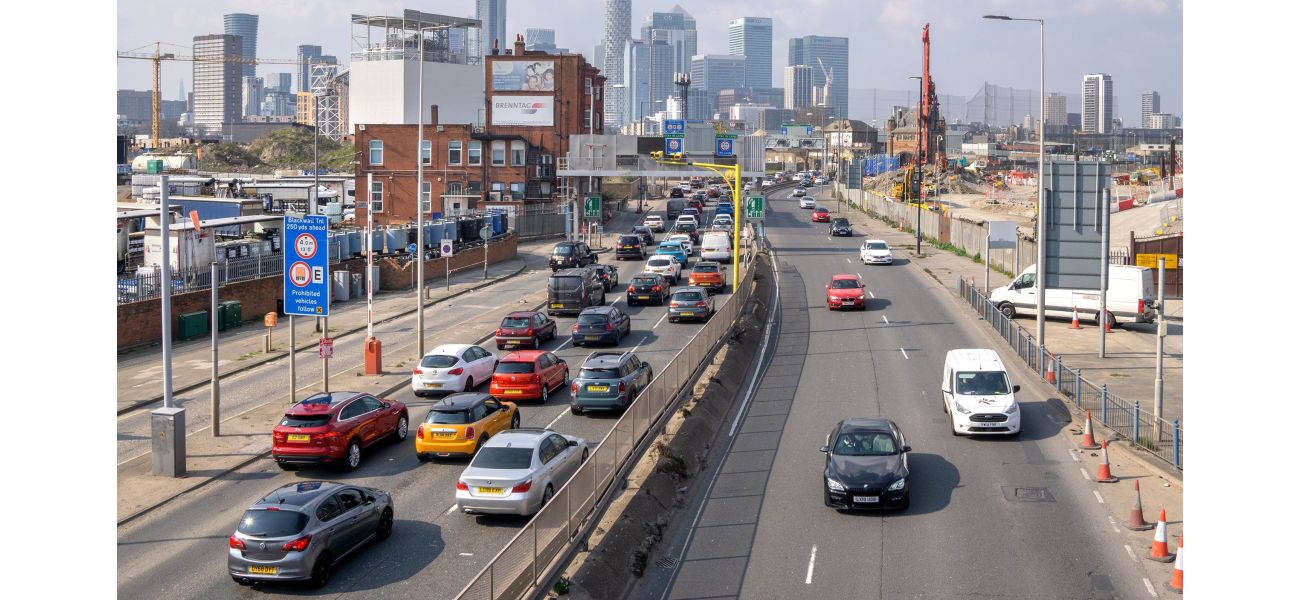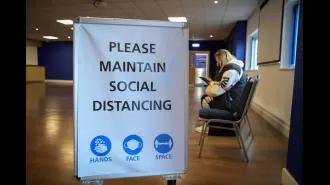London's oldest tunnel will now charge drivers, marking a significant change after 130 years.
Fees will begin soon.
December 5th 2024.

If you're a regular commuter, you've probably experienced the frustration of being stuck in traffic on your way to the Blackwall Tunnel. And now, it looks like there will be even more delays as Transport for London has just confirmed new charges for both the Blackwall and Silvertown Tunnels.
After careful consideration and a public consultation, TfL has given the green light to the charges for these two vital connections between Greenwich and Poplar, as well as the Victoria Docks in East London. The charges will be £1.50 during off-peak hours and £4 during peak hours. This decision comes after years of these tunnels being free to use, since their opening in the late 1800s.
The Silvertown Tunnel, which is currently being built and will span 1.4km, is set to open in the spring of 2025. It will link North Greenwich with the A1020 and is expected to provide much-needed relief for commuters. However, not everyone is happy with these charges. Some drivers have voiced their concerns, pointing out that the Blackwall Tunnel entrances and exits are already plagued with traffic jams and delays.
TfL has stated that these charges are necessary in order to manage the levels of traffic in the tunnels and reduce congestion, which has a direct impact on air quality. They have also mentioned that there will be discounts and exemptions available for eligible Londoners, charities, and small businesses, as well as an option for Auto Pay, which will give drivers access to the off-peak rates.
But what exactly are these charges and when do they apply? Let's break it down. Motorcycles, mopeds, and motor tricycles will be charged £1.50, while cars and small vans will pay £1.50 during off-peak hours and £4 during peak hours. Large vans will be charged £2.50 and HGVs will pay £5 during off-peak hours and £10 during peak hours. These charges will apply every day from 6am to 10pm in both directions.
It's worth mentioning that these charges will not apply during nighttime, between 10pm and 6am. It's also important to note that the peak hours are between 6am and 10am northbound, and 4pm and 7pm southbound on weekdays. So, if you're planning on using these tunnels during these times, be prepared to pay the peak rates.
TfL has also assured the public that this decision was not made lightly. They ran a public consultation in the summer and received over 5,300 responses. And now, with the approval from the TfL board, these charges will come into effect in the spring of 2025, when the Silvertown Tunnel is expected to open.
London Mayor Sadiq Khan has acknowledged the chronic traffic congestion on the Blackwall Tunnel approaches and believes that the Silvertown Tunnel will help ease this issue. He also mentions that it will reduce journey times and improve air quality. Christina Calderato, a director of strategy at TfL, has also stated that these measures are necessary in order to manage traffic demand and minimize environmental impacts.
TfL will also be launching a major marketing campaign in the New Year to encourage drivers to sign up for Auto Pay, which will give them access to the off-peak discounts from launch. This will not only benefit Londoners, but also help with managing traffic and reducing congestion.
For those who are concerned about the impact of these charges, TfL has pointed out that when the Blackwall Tunnel is closed for planned works or emergencies, it tends to cause traffic at other river crossings. With the opening of the Silvertown Tunnel, this is expected to alleviate some of the traffic from the Blackwall Tunnel.
The Silvertown Tunnel has been in the works for almost a decade and is finally reaching its final stages of construction. It's set to bring much-needed relief for commuters and help improve the overall traffic situation in the area. With careful planning and consideration, TfL hopes that these charges will not only manage traffic demand, but also support local residents and businesses.
After careful consideration and a public consultation, TfL has given the green light to the charges for these two vital connections between Greenwich and Poplar, as well as the Victoria Docks in East London. The charges will be £1.50 during off-peak hours and £4 during peak hours. This decision comes after years of these tunnels being free to use, since their opening in the late 1800s.
The Silvertown Tunnel, which is currently being built and will span 1.4km, is set to open in the spring of 2025. It will link North Greenwich with the A1020 and is expected to provide much-needed relief for commuters. However, not everyone is happy with these charges. Some drivers have voiced their concerns, pointing out that the Blackwall Tunnel entrances and exits are already plagued with traffic jams and delays.
TfL has stated that these charges are necessary in order to manage the levels of traffic in the tunnels and reduce congestion, which has a direct impact on air quality. They have also mentioned that there will be discounts and exemptions available for eligible Londoners, charities, and small businesses, as well as an option for Auto Pay, which will give drivers access to the off-peak rates.
But what exactly are these charges and when do they apply? Let's break it down. Motorcycles, mopeds, and motor tricycles will be charged £1.50, while cars and small vans will pay £1.50 during off-peak hours and £4 during peak hours. Large vans will be charged £2.50 and HGVs will pay £5 during off-peak hours and £10 during peak hours. These charges will apply every day from 6am to 10pm in both directions.
It's worth mentioning that these charges will not apply during nighttime, between 10pm and 6am. It's also important to note that the peak hours are between 6am and 10am northbound, and 4pm and 7pm southbound on weekdays. So, if you're planning on using these tunnels during these times, be prepared to pay the peak rates.
TfL has also assured the public that this decision was not made lightly. They ran a public consultation in the summer and received over 5,300 responses. And now, with the approval from the TfL board, these charges will come into effect in the spring of 2025, when the Silvertown Tunnel is expected to open.
London Mayor Sadiq Khan has acknowledged the chronic traffic congestion on the Blackwall Tunnel approaches and believes that the Silvertown Tunnel will help ease this issue. He also mentions that it will reduce journey times and improve air quality. Christina Calderato, a director of strategy at TfL, has also stated that these measures are necessary in order to manage traffic demand and minimize environmental impacts.
TfL will also be launching a major marketing campaign in the New Year to encourage drivers to sign up for Auto Pay, which will give them access to the off-peak discounts from launch. This will not only benefit Londoners, but also help with managing traffic and reducing congestion.
For those who are concerned about the impact of these charges, TfL has pointed out that when the Blackwall Tunnel is closed for planned works or emergencies, it tends to cause traffic at other river crossings. With the opening of the Silvertown Tunnel, this is expected to alleviate some of the traffic from the Blackwall Tunnel.
The Silvertown Tunnel has been in the works for almost a decade and is finally reaching its final stages of construction. It's set to bring much-needed relief for commuters and help improve the overall traffic situation in the area. With careful planning and consideration, TfL hopes that these charges will not only manage traffic demand, but also support local residents and businesses.
[This article has been trending online recently and has been generated with AI. Your feed is customized.]
[Generative AI is experimental.]
0
0
Submit Comment





